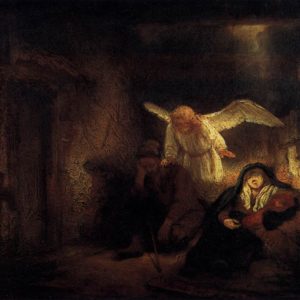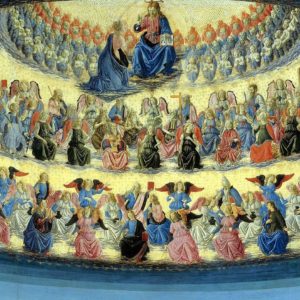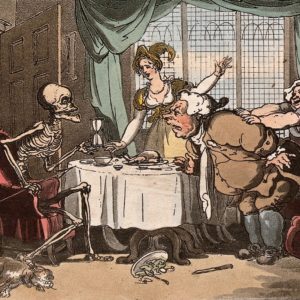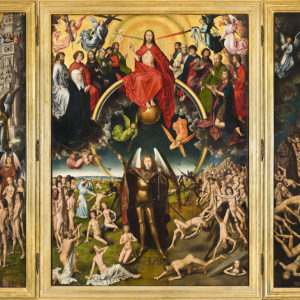St. Paul tells his readers to “Let the word of Christ dwell in you richly, as you teach and admonish one another in all wisdom, and as you sing psalms and hymns and spiritual songs with thankfulness in your hearts to God” (Col. 3:16). It’s a reminder to live the life of a Christian in… Continue reading Salvation by Thanksgiving: Praising God Always
Tag: faith
The Logic of Revelation
Epiphany is the feast day celebrating (as the name suggests) Revelation. So how does God’s self-revelation answer the objections of moral relativists, and of Mormons and Protestants who believe in a Great Apostasy?
Through Jewish Eyes: A New Way to Understand the Advent and Christmas Scriptures
You’ve heard the Biblical accounts of the Virgin Birth, but I’m willing to bet that (like most people) you misunderstand them. For example, were Mary and Joseph married at the time of the Annunciation? Why does Matthew refer to Joseph as Mary’s “husband,” and yet common translations of Luke have Mary saying to the angel, “I have no husband” (Matt. 1:19; Luke 1:34)? What does it mean that Joseph “took his wife,” or that Joseph “knew her not until she had borne a son” (Matt. 1:24-25)? And finally, why did Joseph consider divorcing Mary, and why does the angel respond by telling him not to be afraid?
God & Hell: The Infinite Good
Are we like the tortured “hungry ghosts” of mythology, constantly craving and never satisfied? Or are there good reasons to believe God is capable of TOTALLY satisfying the infinite chasm in our hearts? A brief overview of the philosophical, Scriptural, and Patristic evidence.
God & Hell: God or Hungry Ghosts
Perhaps everything I said yesterday sounds depressing: we go through life constantly craving the good, and yet none of the goods of this life satisfy that craving. And you’re right. If atheists are right, and this is all that there is, reality really does seem to be a sick joke. And so we have to choose in what we believe: God or hungry ghosts?
God & Hell: Our Infinite Hunger
Traditionally, the four Sundays of Advent were preached on the “Four Last Things” (death, judgment, heaven, and hell), so it’s a good time to ask: Is the idea of hell – an eternity of suffering apart from God – compatible with the idea of an all-good and loving God? I think that this is one of the strongest arguments against traditional Christian doctrine. I would argue that it is, but that to see this we need to see something about ourselves, and about God in relation to us, before we can see why. That’s what I’ll be exploring over the next four days. I’ll be making four major points:
1. We have an infinite craving for the good. Everything we do is in pursuit of the good;
2. Because no earthly goods are capable of satisfying our hearts, life is cruel… unless there is a good capable of satisfying the infinite longings of our hearts.
3. God, as infinite and perfect good, is the only one who can fill our hearts.
4. Eternity without God would necessarily be hellacious.
Let’s start with the first of these points…
What Makes a “Holiday”? A Theory of Festivity
What makes a holiday a holiday? What makes an event “festive”? Josef Pieper (author of “Leisure: The Basis of Culture”) explored this in a work called “In Tune with the World: A Theory of Festivity,” and it might be a good think to wonder about as we enter into the week of Thanksgiving.
If Christ’s Sacrifice is “Once-For-All,” Does the Mass Re-Sacrifice Him?
There are two or three objections that I commonly hear to the Sacrifice of the Mass, and I wanted to create something short and easy to memorize, so that you’ll know what to say if people ask you (or, if these are questions you have, so you’ll have an easy-to-remember answer). The objections are:
Objection 1: Christ’s Sacrifice on Calvary is Once-for-All (Hebrews 7:27), so the Sacrifice of the Mass denies the efficacy of Christ’s Sacrifice, and effectively re-Sacrifices Him.
Objection 2: Catholics and Orthodox sometimes describe the Sacrifice of the Mass as the “Unbloody Sacrifice,” but “without the shedding of blood there is no forgiveness of sins” (Hebrews 9:22), so the Sacrifice of the Mass doesn’t do anything (and certainly doesn’t forgive sins).
Objection 3: How can Catholics and Orthodox call the Sacrifice of the Mass the “Unbloody Sacrifice” and still claim to be consuming His Blood?
A Simple Case for the Papacy
The “make-or-break” doctrine for the Catholic Church is the papacy. If Catholics are right about the papacy, we should all be Catholic. If we’re wrong about the papacy, none of us should. So here are just a couple of Biblical passages to get to know (and to pray over) well, and a bit of background / answers for the debate around them.
The Hidden Eucharistic Meaning of “Not by Bread Alone”
In Matthew 4:4, Jesus says, “Man shall not live by bread alone, but by every word that comes from the mouth of God.” What does this have to do with the Eucharist?
You may be inclined to say “NOTHING, He’s talking about reading the Bible,” or even “IT DISPROVES THE EUCHARIST, because it shows He uses eating imagery when He just means belief or Bible reading.” But those answers are Biblically ignorant, since they’re ignoring the context of Jesus’ Old Testament quotation. It turns out, there’s a Eucharistic dimension to His Scriptural quotations here that almost everyone misses.









